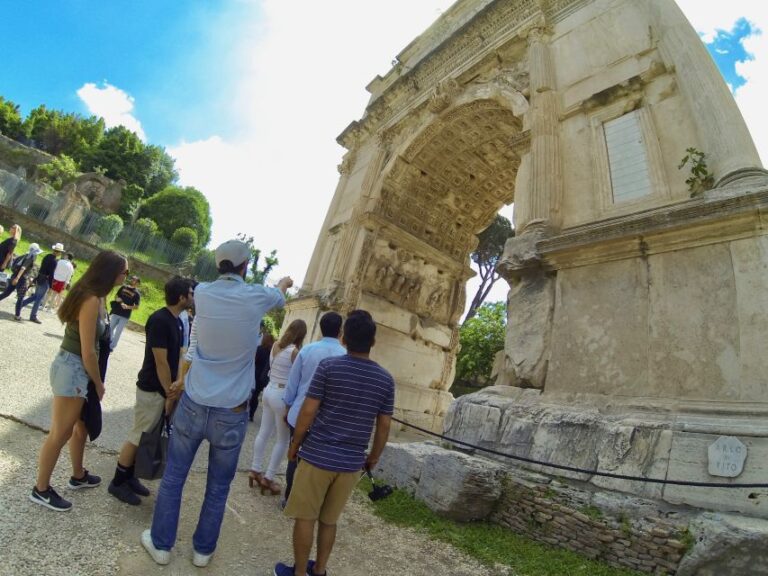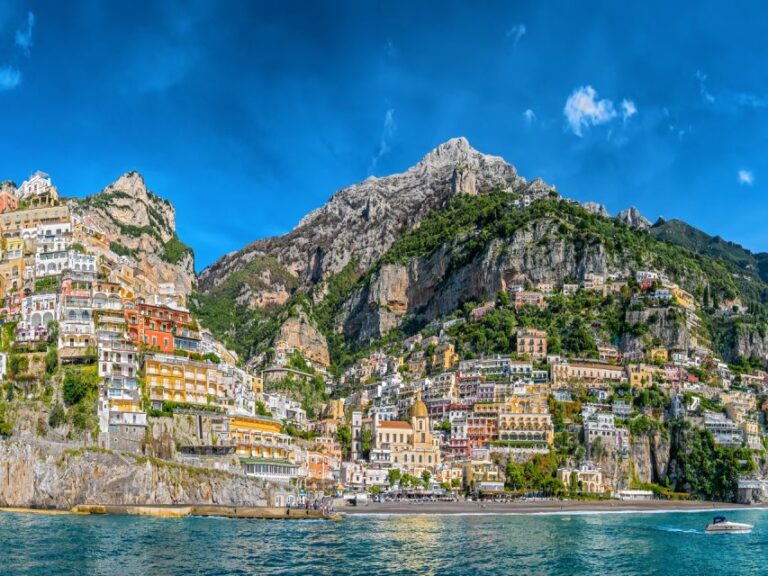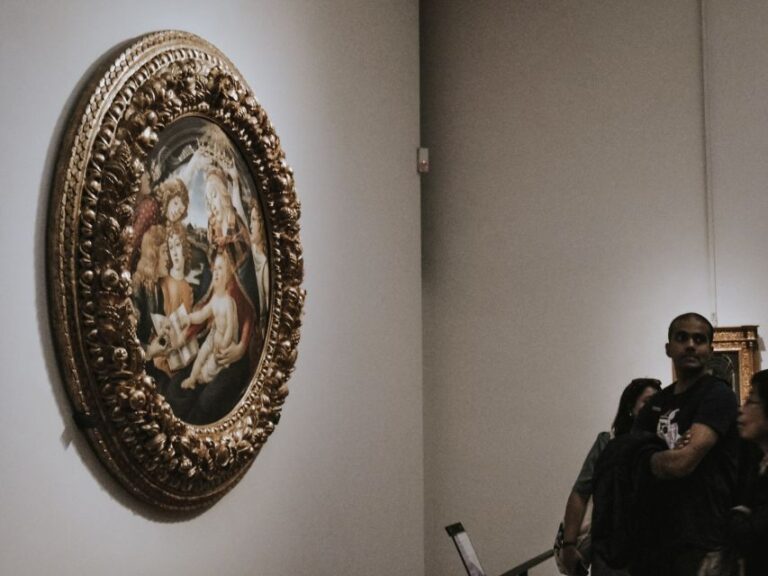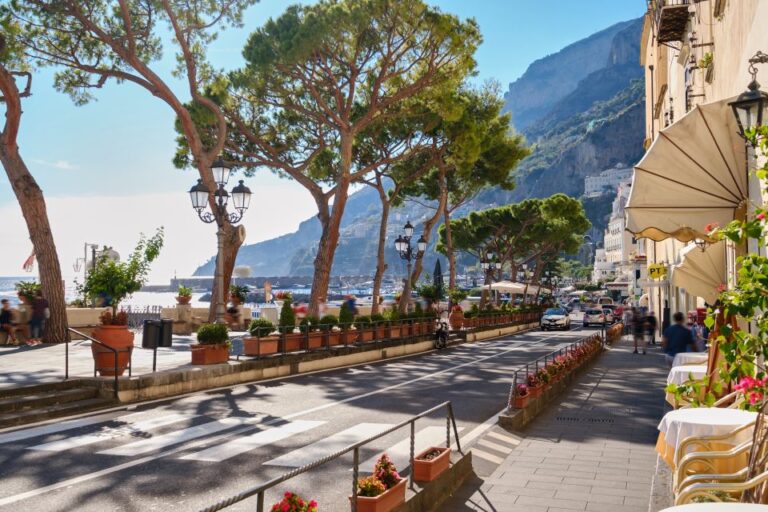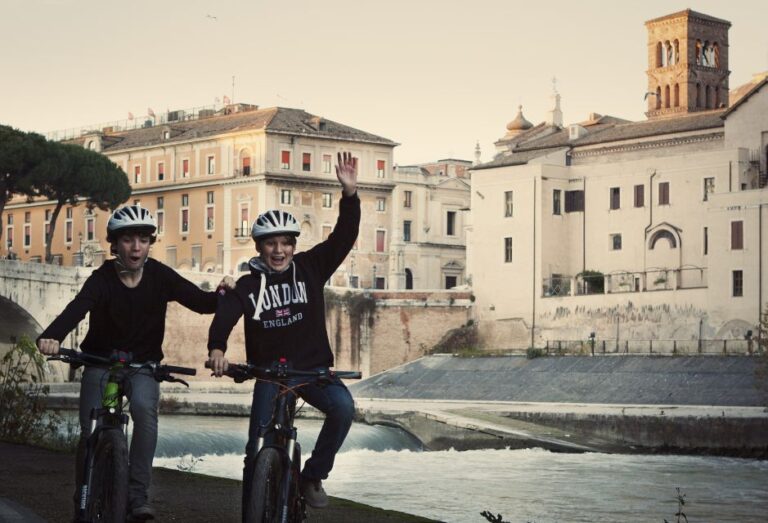Enjoy the intricate realm of wine-tasting, where every sip unveils a rich tapestry of flavors waiting to be deciphered.
Beyond the mere act of swirling and sipping lies a world where sensory exploration transcends the ordinary, revealing the profound interplay of terroir, history, and craftsmanship in each glass.
As the veil of mystery surrounding multisensory perception in wine analysis is lifted, embark on a journey that promises to enhance not just your tasting skills but your appreciation for the artistry that lies within every bottle.
Just The Basics
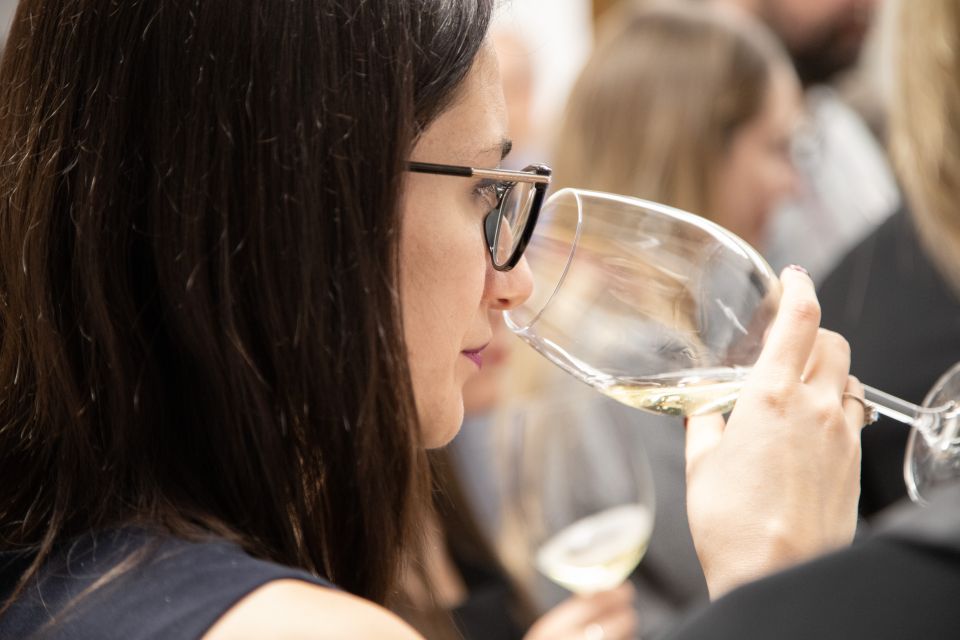
- Engage all senses in wine tasting for a complete experience
- Understand the impact of volcanic soils on wine characteristics
- Discover the history and traditions of Italian winemakers
- Learn sensory analysis techniques to recognize wine qualities
It's also worth checking out some other tours and experiences nearby.
Wine-Tasting Fundamentals
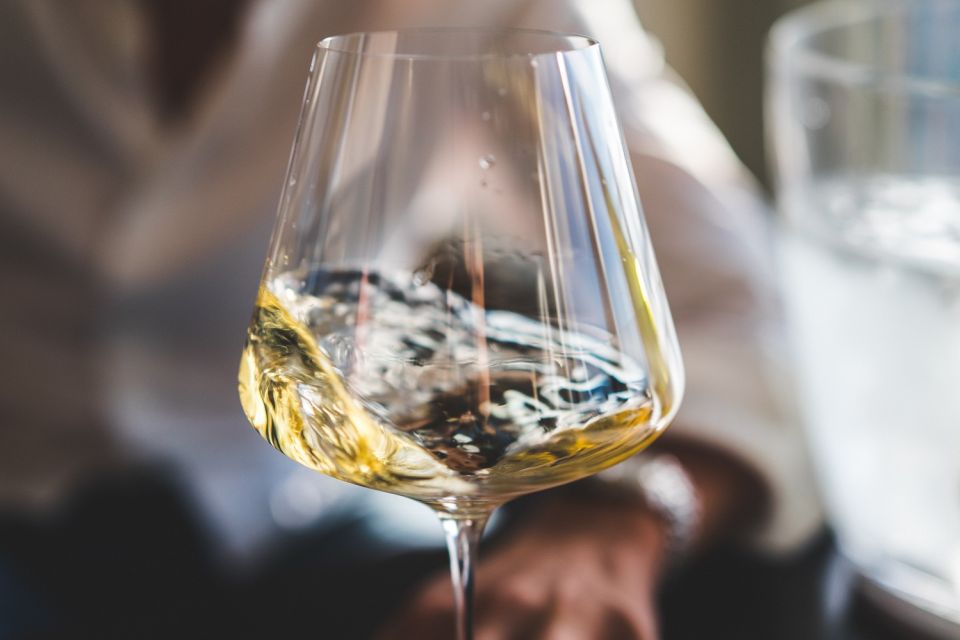
Set out on a journey into the world of wine-tasting fundamentals, where the intricate art of sensory analysis unveils the essence of each sip. Taste exploration involves a meticulous examination of flavors, textures, and structures that define a wine.
Through aroma identification, one can discern the subtle notes of fruits, spices, flowers, or oak within the wine, enhancing the overall tasting experience. Understanding the connection between aroma and taste is key to unraveling the complexity of wines.
Multisensory Perception in Wine Analysis
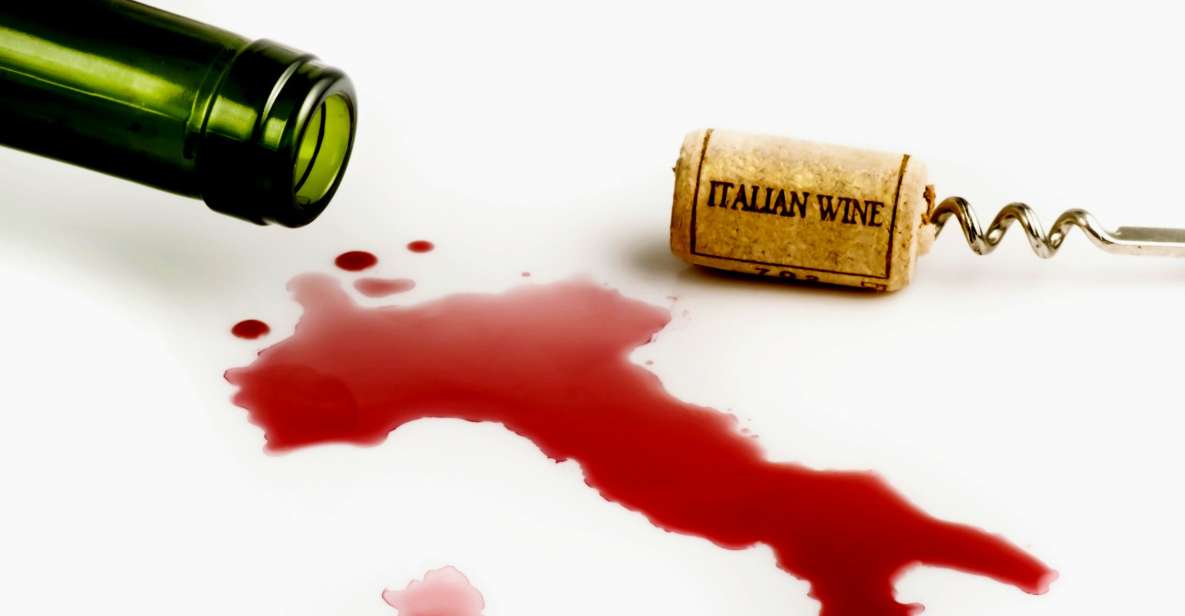
Exploring the intricate world of wine analysis delves into the realm of multisensory perception, illuminating the profound impact of engaging all senses in deciphering the complexities of each sip.
Sensory perception plays a pivotal role in wine analysis, where tasting techniques go beyond just the palate. Visual examination, olfactory tests, taste assessment, and evaluating the aftertaste all contribute to a comprehensive understanding of a wine’s characteristics.
Engaging all five senses in basic tasting techniques not only enhances the tasting experience but also allows for a deeper appreciation of the wine’s nuances.
Volcanic Wines: Unique Characteristics Revealed
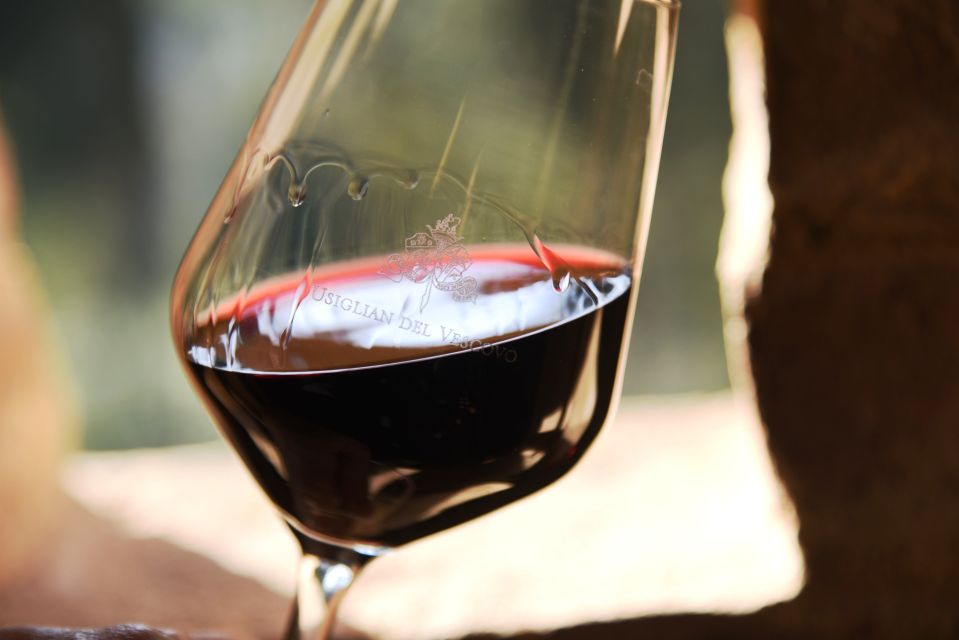
Explore the intriguing realm of volcanic wines to uncover their distinctive characteristics that set them apart in the world of winemaking.
-
Unique Terroir: Volcanic soils impart a distinct mineral-rich quality to the grapes, influencing the flavor profile and aroma of the resulting wines.
-
Volcanic Influence: The volcanic environment affects the vines’ growth, leading to wines with unique characteristics that reflect the terroir’s volcanic influence.
-
Tasting Notes, Volcanic Wines: When tasting volcanic wines, expect vibrant acidity, pronounced minerality, and often a smoky or earthy undertone, showcasing the unique terroir where the grapes were cultivated.
Sensory Analysis Techniques Demystified
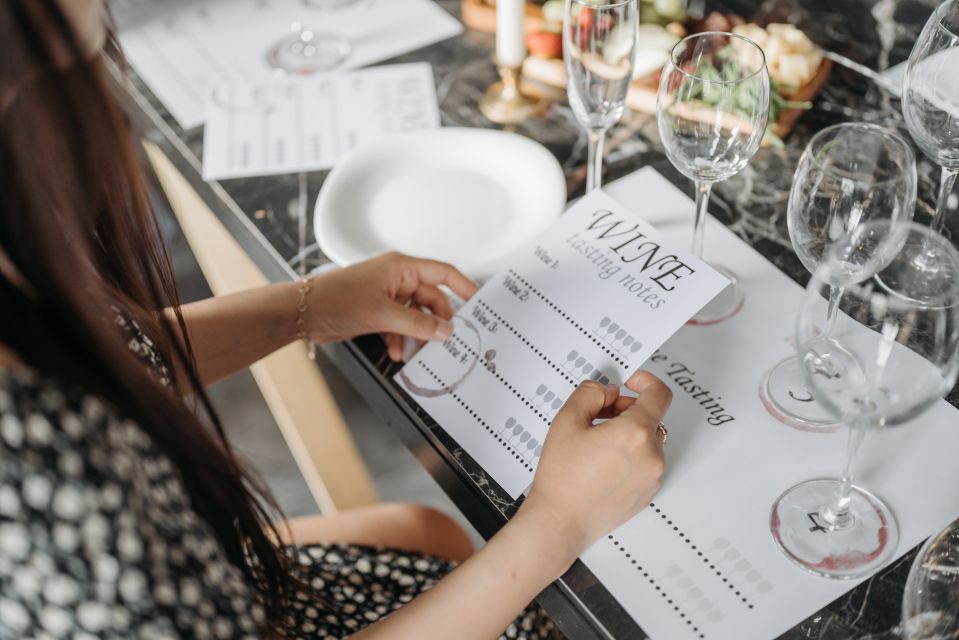
Unravel the intricate world of wine through the demystification of sensory analysis techniques, shedding light on the nuanced art of understanding and appreciating the qualities of different varietals.
Sensory exploration is at the heart of wine-tasting, encompassing visual examination, olfactory tests, taste assessment, and aftertaste evaluation. Engage in tasting rituals that involve all five senses, allowing for a comprehensive understanding of a wine’s character and essence.
Enhancing Wine Appreciation Skills
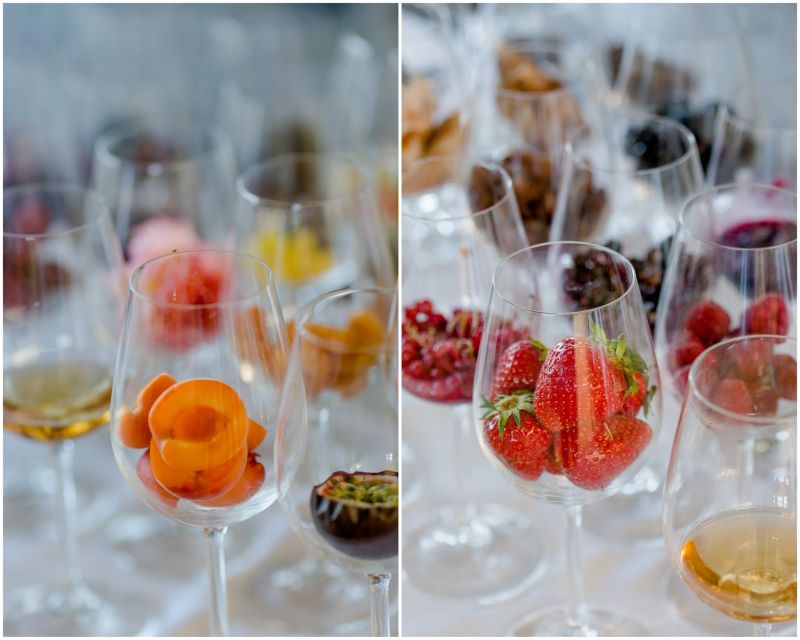
To cultivate a refined palate and deepen your understanding of wines, honing your wine appreciation skills is essential.
Tips to Enhance Wine Appreciation Skills:
-
Practice Regular Tastings: Conduct regular wine tastings to train your palate to discern different flavors, aromas, and textures.
-
Try Wine Pairing: Experiment with pairing wines with various foods to understand how different flavors complement or contrast each other, enhancing the overall dining experience.
-
Attend Tasting Events: Participate in wine tasting events or workshops led by experts to learn about different grape varieties, regions, and winemaking techniques, further expanding your knowledge and appreciation of wines.
Here's a few more nearby tours and experiences we think you'll like.
Frequently Asked Questions
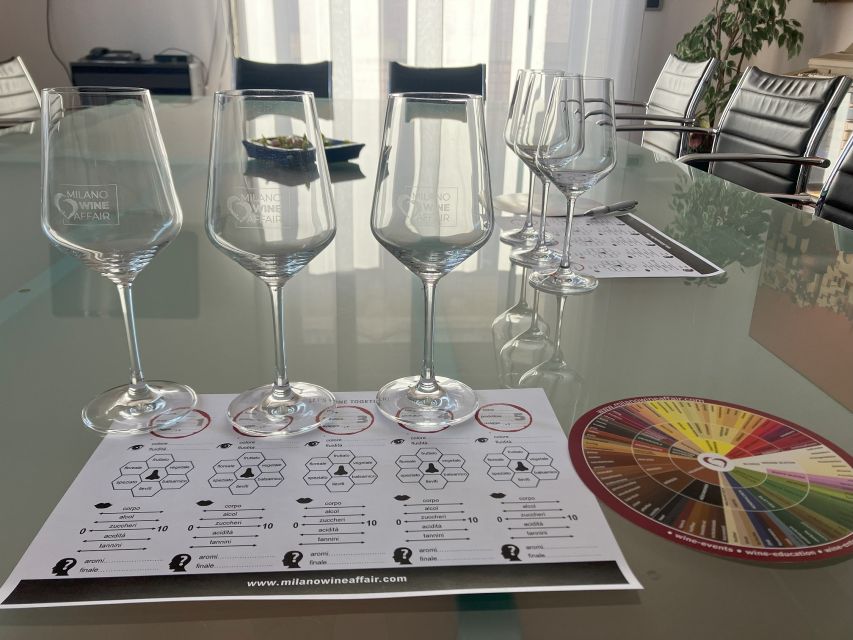
Can Participants Request a Specific Type of Volcanic Wine to Taste During the Workshop?
Participants can request specific volcanic wines for tasting during the workshop, subject to availability. There are no age restrictions for this experience. Engage in a sensory journey exploring the unique qualities of volcanic wines under the guidance of a professional sommelier.
Are There Any Age Restrictions for Participating in the Wine-Tasting Workshop?
Age restrictions for workshop participation vary, ensuring a suitable environment for all attendees. Detailed guidelines are typically outlined in the activity description. It’s recommended to review these requirements before booking to ensure a seamless and enjoyable experience.
Is There a Dress Code or Recommended Attire for the Wine-Tasting Experience?
The wine-tasting experience recommends smart casual attire. Opt for comfortable yet stylish clothing. Avoid strong perfumes that can interfere with wine aromas. Etiquette suggests engaging with the process respectfully. Dress appropriately to enjoy the multisensory journey.
Can Participants Purchase the Volcanic Wines Tasted During the Workshop On-Site?
Participants can purchase the volcanic wines tasted during the workshop on-site. Specific requests or educational resources regarding these wines can be accommodated. No age restrictions apply. Attire recommendations are casual. Enhance your wine tasting education with these purchase options.
Are There Any Additional Resources or Materials Provided to Help Participants Continue Their Wine-Tasting Education After the Workshop?
Participants can access online resources for further wine education post-workshop. They may receive tasting notes to enhance their understanding. Joining wine clubs offers ongoing learning opportunities. Stay updated with events calendars for future tastings and educational experiences.
Not for you? Here's more of our most recent tour reviews happening neaby
- The Secret of Italian Bubbles – Taste & Learn to Distinguish
- Milan: Last Supper and Sforza Castle Tour
- Rise Higher: Duomo Sky Walk – Milan’s Heavenly Views
- Private Milan 2-Hours Segway Tour Brera & Skyline Views
- Milan: Maison Milano Friday Dinner Show
- Fresh Pasta Experience for Children – Cooking Class
- Milan: Evening Food Tour
- Milan Off-the-Beaten-Path Private Walking Tour
- Private Navigli Walking Tour
- Milan: Dining Experience at a Local’s Home
- Milan: Maison Milano Saturday Dinner and Show
- Milan 2-Hour Private Segway Tour: History and Navigli
- Milan: Wine Tasting With an Italian Sommelier
- Milan: Vintage Shopping Tour
- Milan: Private Navigli Neighborhood Walking Tour
Final Words
To sum it up, the art of wine-tasting unveils a sensory journey that transcends mere gustatory pleasure. Through the exploration of Italian volcanic wines, participants are guided through a multisensory experience that reveals the profound impact of geological influences on grape quality and wine characteristics.
By engaging all five senses and acquiring fundamental tasting techniques, you can develop a deeper appreciation for the intricate symbiosis between nature, tradition, and sensory analysis in the realm of viticulture.

